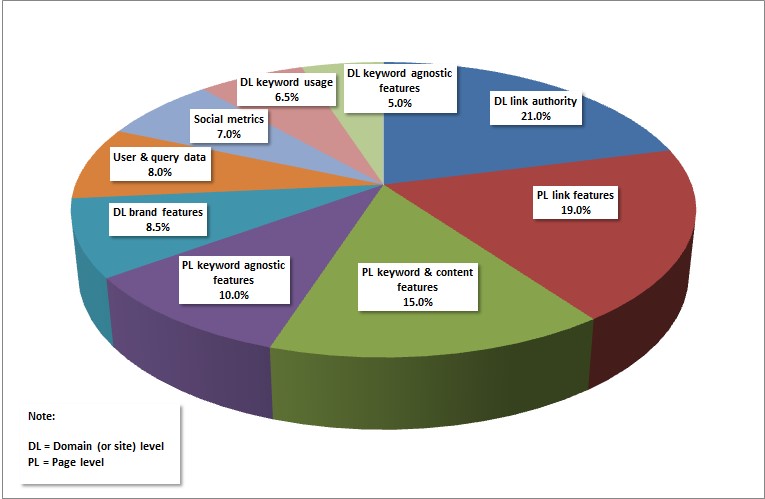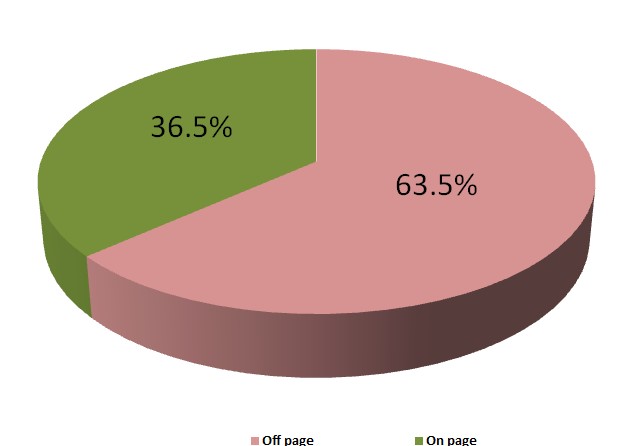Hey SEO wizard!
You now know how to build and structure your website to get maximum SEO benefit from it.
And that is really saying something.
But now it’s time to look at off-page optimisation.
The importance of off-page optimisation for SEO
Whilst we don’t want to pull the plug on your now-I-really-get-on-page-optimisation party, it is worthwhile just pulling up a pie chart we showed you earlier in this series of posts.
You know, back when you were a SEO novice.
It’s taken from the Moz panel of SEO experts trying to determine which factors have the most influence on your Google ranking.

You can sweat the detail of this a bit here if you need to.
But, for now, this is what we’d like you to focus on. Here are all those segments of the pie grouped and collated into just two pieces: on-page optimisation of your site and off-page optimisation of your site.
That is to say things you do to your site and things that happen beyond it.
(You may find this summary of the differences between on-page and off-page SEO useful.)

Gasp!
Excuse us: it still makes us gasp every time we look at it.
Nearly two-thirds of the weight given to ranking factors falls in off-page’s court.
So, it’s high time we introduced you to the SEO big hitters.
Your on-page optimisation creates the perfect springboard for you.
It’s now time to execute a beautiful pike, segue into a dream tuck, gracefully execute a somersault and throw in a tremendous twist before you enter the waters with barely a ripple on the surface.
We’re about to show you how to dive into the search waters with a perfect 10.
What is off-page optimisation?
Off-page is about all the things that happen (or don’t happen) on sites other than your own. That covers a lot of ground but, as ever, some things (and some sites) are more important than others.
Off-page optimisation is mainly about links:
- Who and how many sites create links to you.
- Where and how they create these links.
- Why they are linking to you.
But it is also about mentions (sometimes called citations):
- Who and how many people mention you and your content online.
- What topics and keywords they associate you with.
- What they feel about you (known as sentiment).
And social media plays an increasingly important role – even if it is still disputed whether it acts as a correlate or a direct ranking factor.
We’ll look into this further in the next post but the key factors are:
- Who and how many people share your content socially.
- The sentiment of those shares.
In short, off-page optimisation is about the buzz you create, the waves you make, the love you share and the respect that you receive.
All the previous posts in this series can be found here.
For the complete version of this Fast track SEO course head over to Amazon.
It’s yours for less than a fiver!

